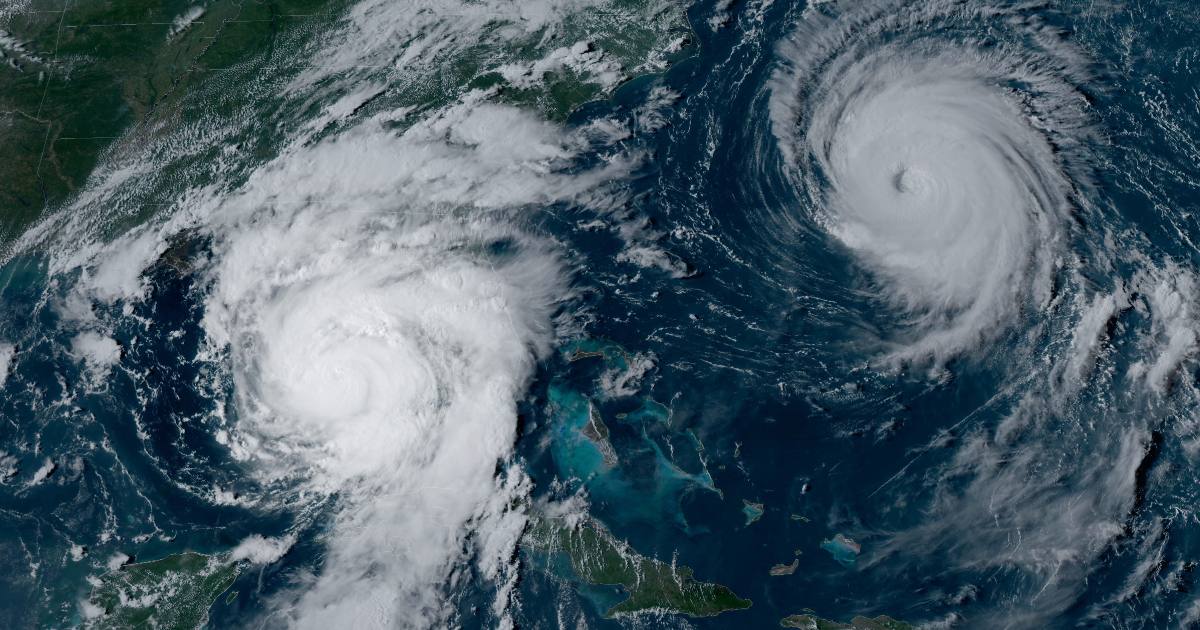
The National Oceanic and Atmospheric Administration (NOAA) of the United States predicted this Friday a more active than usual hurricane season in the Atlantic, with the possibility of up to 13 hurricanes, of which up to seven could be of great intensity.
According to the annual forecast published by the entity every May, between June 1 and November 30, there will be between 17 and 25 storms with winds exceeding 62 kilometers per hour.
Rick Spinrad, administrator of NOAA, highlighted in a press conference that this forecast is the highest that the agency has ever issued in its regular May report, as in a typical season, between seven hurricanes and three major hurricanes with maximum sustained winds of 178 km/h or more are recorded.
The high expected activity in the Atlantic basin is attributed to a combination of factors favorable for the formation of storms, including warm ocean temperatures nearly at record levels in the Atlantic and the development of La Niña conditions in the Pacific.
NOAA indicates that the reduction of the trade winds in the Atlantic and lower wind shear will contribute to a season with a number of cyclones higher than the average of 14 named storms.
The Deputy Administrator of the Federal Emergency Management Agency (FEMA), Erik Hooks, warned that storms are already being seen throughout the country that can bring additional dangers such as tornadoes, floods, and hail.
As one of the strongest El Niño phenomena ever observed comes to an end, NOAA anticipates a rapid transition to La Niña, which tends to decrease wind shear in the tropics. This, combined with high temperatures in the tropical Atlantic Ocean and the Caribbean Sea, will promote the development of storms.
Human-caused climate change is warming the oceans globally and in the Atlantic basin, melting ice on land and causing sea levels to rise, increasing the risk of storm surges, stated the state agency. It emphasized that the rise in sea level reflects the clear human influence on the potential damage that a hurricane can cause.
This forecast had already been anticipated a few months ago by the meteorology experts at Colorado State University, who announced an "extremely active" hurricane season in the Atlantic this 2024, with the highest figures in the last 30 years.
This pioneering group in seasonal hurricane prediction said that there could be 23 named storms, of which 11 could become hurricanes, and five of these could reach category 3, 4, or even 5, with winds exceeding 111 mph (miles per hour).
This projection is well above the historical average of 14 named storms, seven hurricanes, and three Category 3 or higher hurricanes for the period between 1991 and 2020. In fact, it is the highest forecast issued by Colorado State University since they began making these predictions in 1995.
Experts from Cuba also agreed with these forecasts. Specialists from the Climate Center and the Forecast Center of the Institute of Meteorology of the island reported that the 2024 hurricane season will be very active throughout the entire North Atlantic basin, which also includes the Gulf of Mexico and the Caribbean Sea.
"It is forecasted the formation of 20 tropical cyclones throughout the North Atlantic basin, of which 11 could reach hurricane status," said the Cubans.
Despite these predictions, meteorologists warn that preparing for hurricane season is crucial, as just one hurricane is enough to cause great devastation.
In response to NOAA's forecasts, Secretary of Homeland Security Alejandro Mayorkas urged communities to take measures to prepare for the hurricane season, reminding them of the devastation that these storms can cause.
The data indicates that residents of Southern Florida and other vulnerable areas should prepare in advance and stay tuned for forecast updates throughout the hurricane season.
What do you think?
COMMENTFiled under: